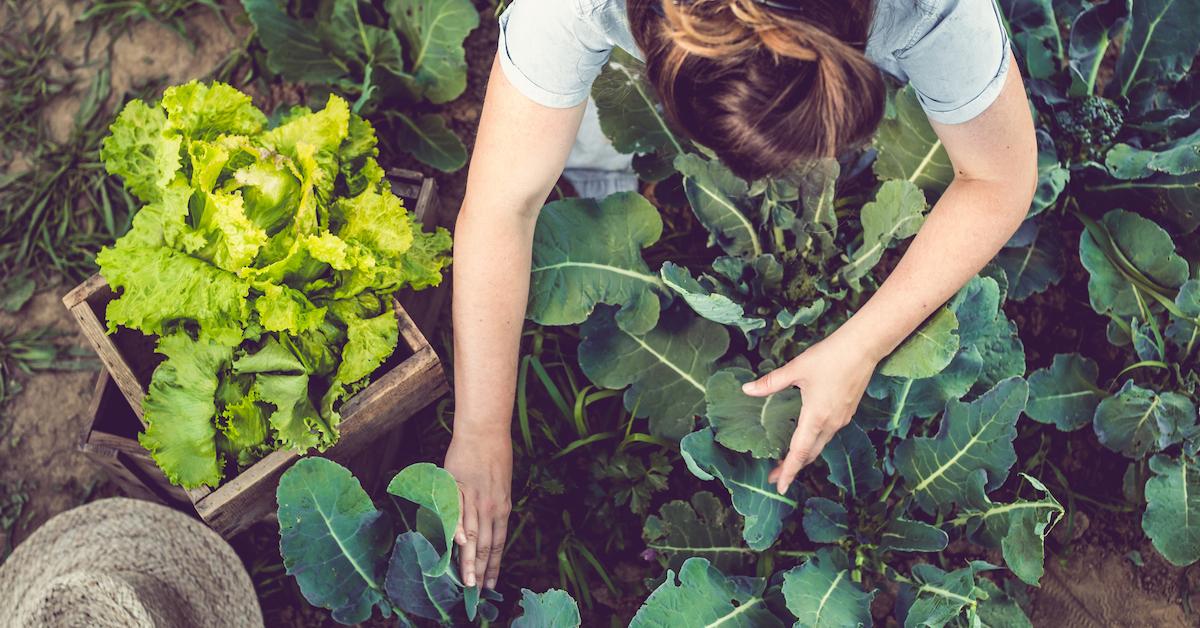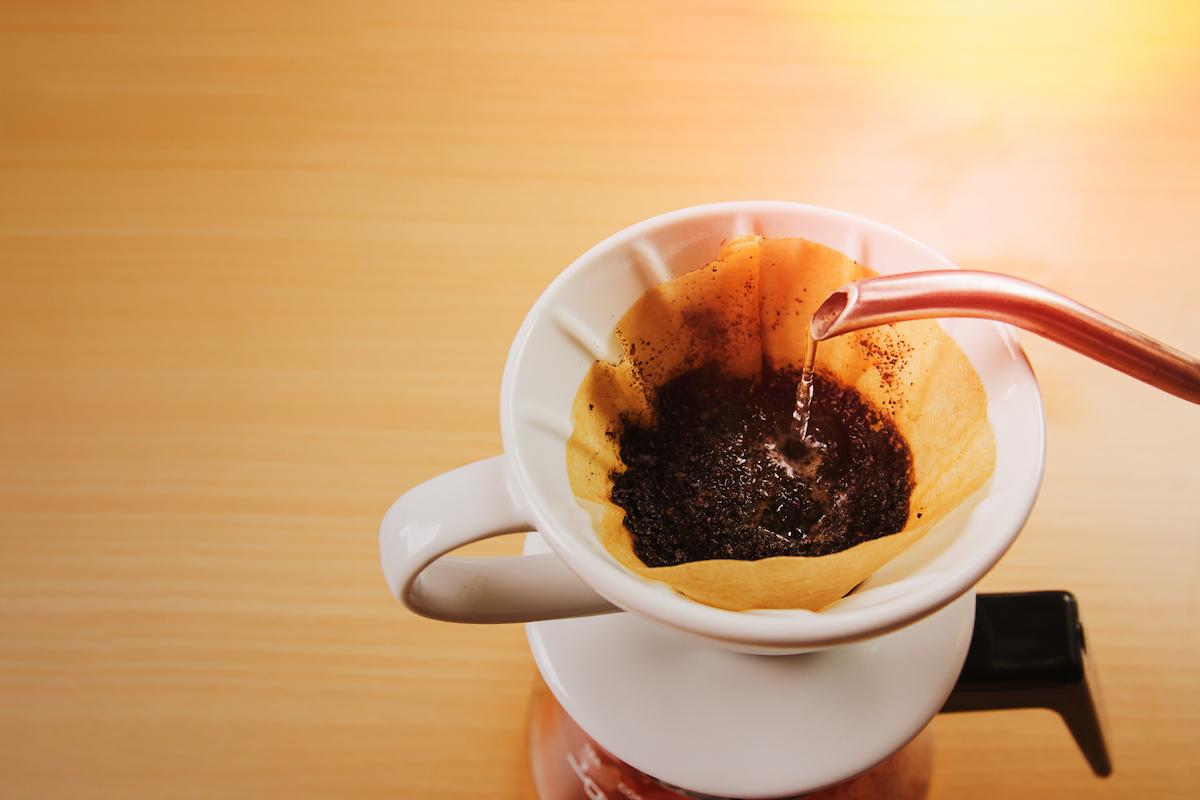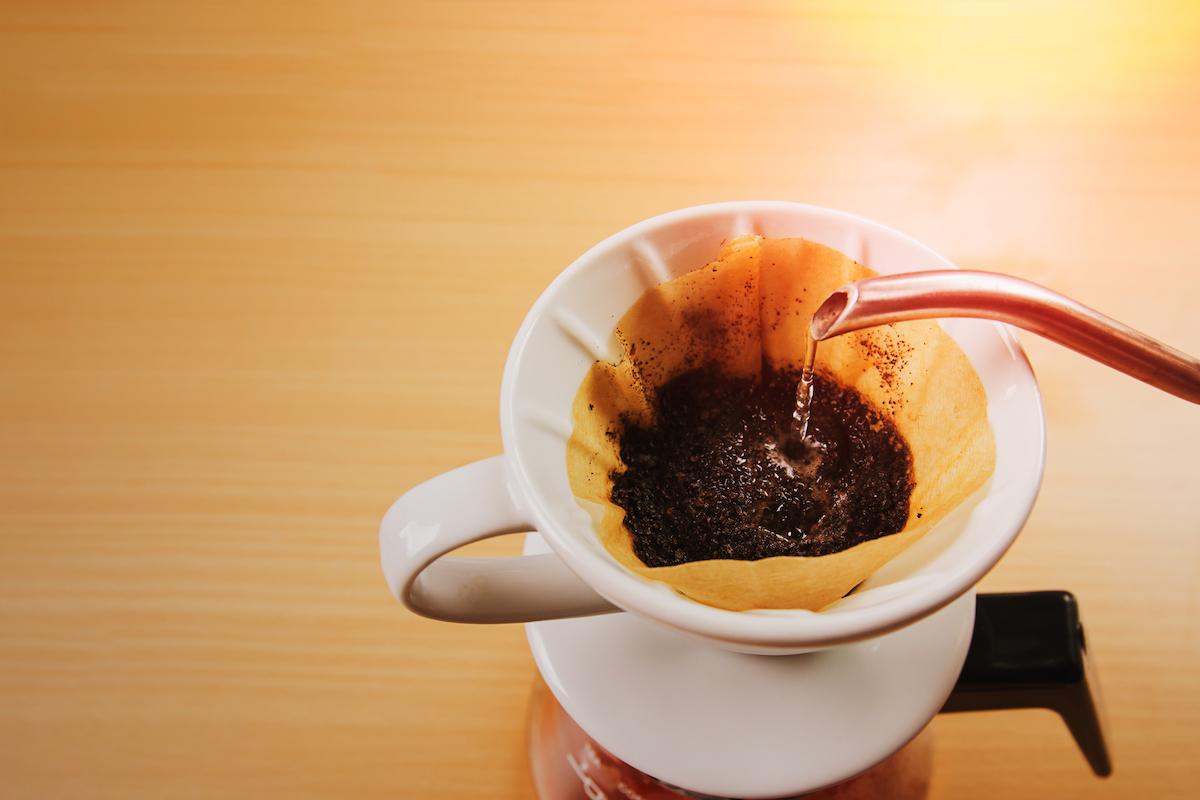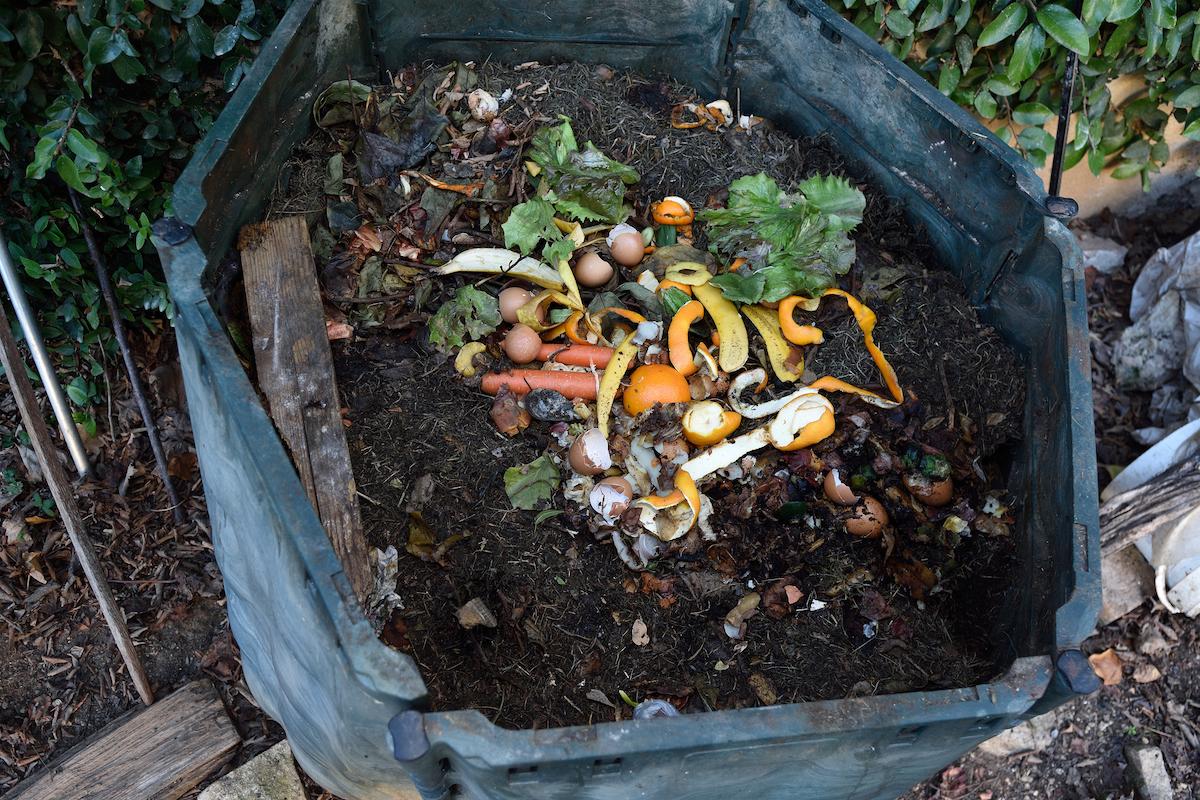Home > Small Changes > Home
Coffee grounds can be a great garden fertilizer

Aug. 12 2019, Updated 1:28 p.m. ET
Whether you make your daily cup of coffee with a french press, a pour-over Chemex, or a classic coffee maker, you probably find yourself with a surplus of coffee grounds pretty often. Some people dispose of them by throwing down the garbage disposal, flushing them down the toilet, or tossing them in the trash —but those methods all have their drawbacks, and are not recommended. Coffee grounds can clog the sink or the toilet, causing plumbing issues; and when you put them in the trash, they will go to the landfill, emitting greenhouse gases such as methane.
Most environmentally conscious coffee drinkers probably throw their grounds in the compost, which is a great zero-waste option. However, coffee grounds are actually a valuable resource when it comes to your garden beyond the compost pile. So if you’re a home gardener, read on for all the things you can do with coffee grounds in your garden.
Article continues below advertisem*nt
Benefits of Putting Coffee Grounds in the Garden
Coffee grounds are rich in nitrogen, potassium, phosphorous, magnesium, and copper, as explained by HGTV. So in general, when added to a garden, coffee grounds can nourish and fertilize the soil (and the plants growing in it) with those elements and minerals. However, some plants are caffeine averse, so never add fresh coffee grounds to a vegetable, flower, or herb garden without doing your research first.
How Do Coffee Grounds Fertilize the Soil?
According to Gardening Know How, adding coffee grounds to soil fertilizes the soil by improving drainage, water retention, and aeration; by providing a fertile environment for microorganisms to thrive and help plants grow; and by attracting earthworms, which are beneficial to gardens (more on that below).
Article continues below advertisem*nt
Are Coffee Grounds a Good Fertilizer for Garden Beds?
Fresh coffee grounds (straight out of the coffee maker) are acidic, meaning they will lower the pH level of your soil. However, rinsed coffee grounds shift to a pH of around 6.5, which is almost neutral, according to Gardening Know How. So if you want to fertilize your soil with coffee grounds, but don’t want to mess with the pH levels of your garden, give your grounds a thorough rinse first.
When Not to Put Coffee Grounds in Your Garden
In terms of using fresh coffee grounds, the acidic pH level makes them ideal to add to soil that is too alkaline (which can be determined with a soil test), or to the soil of plants that thrive in lower pH levels, such as azaleas, blueberries, gardenias, and hydrangeas, according to SF Gate. That said, don’t just add coffee grounds all over your garden at random —make sure to do your research, and check if the plants you’re growing respond well to fresh coffee grounds. Unfortunately, some home gardeners have found that coffee grounds can stunt growth in certain plants.
As mentioned above, to make sure that doesn’t happen, rinse your coffee grounds before adding them to plant beds. To play things as safe as possible, just add coffee grounds to your compost pile first. Once the grounds mix with other organic matter and turn into compost, you can use the compost to fertilize soil throughout your garden.
Article continues below advertisem*nt
Coffee Grounds to Deter Pests
Coffee grounds are commonly used to keep animals including slugs, snails, rabbits and fire ants from eating plants in the garden, and to keep cats from treating garden beds like litter boxes. While gardeners have varying opinions on this, many have found that those animals are not fans of caffeine, so scattering grounds around the plant beds could keep them at bay.
On the flip side, another garden “pest” is actually a big fan of coffee grounds —worms. Worms love eating coffee grounds, and their poop, known as vermicastings, actually enrich soil, according to Nature's Little Recyclers.
Coffee Grounds as Compost
For that reason, coffee grounds can be an important ingredient in your compost bin, especially if you use vermicomposting, aka worm composting. That said, coffee grounds are also a valuable ingredient in other kinds of compost bins and piles —so even if you only compost as a way of disposing of your food scraps, make sure to always include your coffee grounds.
Where to Get Coffee Grounds for the Garden
If you think your garden or compost bin could benefit from coffee grounds, but you’re not a coffee drinker yourself, check out your local coffee shop. Since cafés make so much coffee every day, many will offer bags of coffee grounds to customers for free or for a few dollars. If you can’t find a coffee shop that does this, talk to the managers at a local spot and ask if they would consider putting some grounds aside for you. Or, better yet, see if the café would be interested in starting a program where they offer or sell coffee grounds to customers.
I'm an avid gardening enthusiast with a deep understanding of soil health and plant nutrition. Over the years, I've conducted extensive research, implemented various gardening techniques, and closely observed the impact of different practices on plant growth. My expertise extends to the use of organic materials as fertilizers, including coffee grounds, which I've successfully integrated into my gardening routine.
The article you provided discusses the benefits of using coffee grounds in the garden. Here's an in-depth breakdown of the concepts covered:
-
Coffee Grounds Composition: Coffee grounds contain nitrogen, potassium, phosphorous, magnesium, and copper, making them a nutrient-rich organic material for soil. This composition is explained by HGTV, and it's crucial for nourishing and fertilizing the soil and plants.
-
How Coffee Grounds Fertilize the Soil: According to Gardening Know How, coffee grounds enhance soil fertility by improving drainage, water retention, and aeration. They create a favorable environment for microorganisms, crucial for plant growth, and attract earthworms, which contribute to soil health.
-
Acidity of Coffee Grounds: Fresh coffee grounds are initially acidic, which can lower the pH of the soil. However, rinsed coffee grounds become nearly neutral (pH 6.5). This is important information for gardeners who want to use coffee grounds but maintain a specific pH level in their garden soil.
-
Selective Use of Coffee Grounds: SF Gate advises against using fresh coffee grounds indiscriminately. The acidic pH makes them suitable for alkaline soil or plants that thrive in lower pH levels, such as azaleas, blueberries, gardenias, and hydrangeas. Research is essential to determine the compatibility of specific plants with fresh coffee grounds.
-
Pest Deterrence: Coffee grounds are utilized to deter pests like slugs, snails, rabbits, and fire ants. This is attributed to the caffeine content, which is unpleasant for these animals. However, worms are attracted to coffee grounds, and their presence enriches the soil.
-
Coffee Grounds in Compost: Coffee grounds are a valuable addition to compost bins, especially in vermicomposting (worm composting). The decomposition of coffee grounds contributes to nutrient-rich vermicastings, enhancing overall compost quality.
-
Sourcing Coffee Grounds: The article suggests obtaining coffee grounds from local coffee shops, where they are often available for free or at a minimal cost due to the high volume of coffee production. This is a sustainable way to repurpose coffee grounds and benefit your garden.
In conclusion, incorporating coffee grounds into your gardening practices can be a sustainable and eco-friendly way to enhance soil fertility and repel certain pests. However, careful consideration and research should be undertaken to ensure optimal benefits and avoid potential drawbacks for specific plants.



